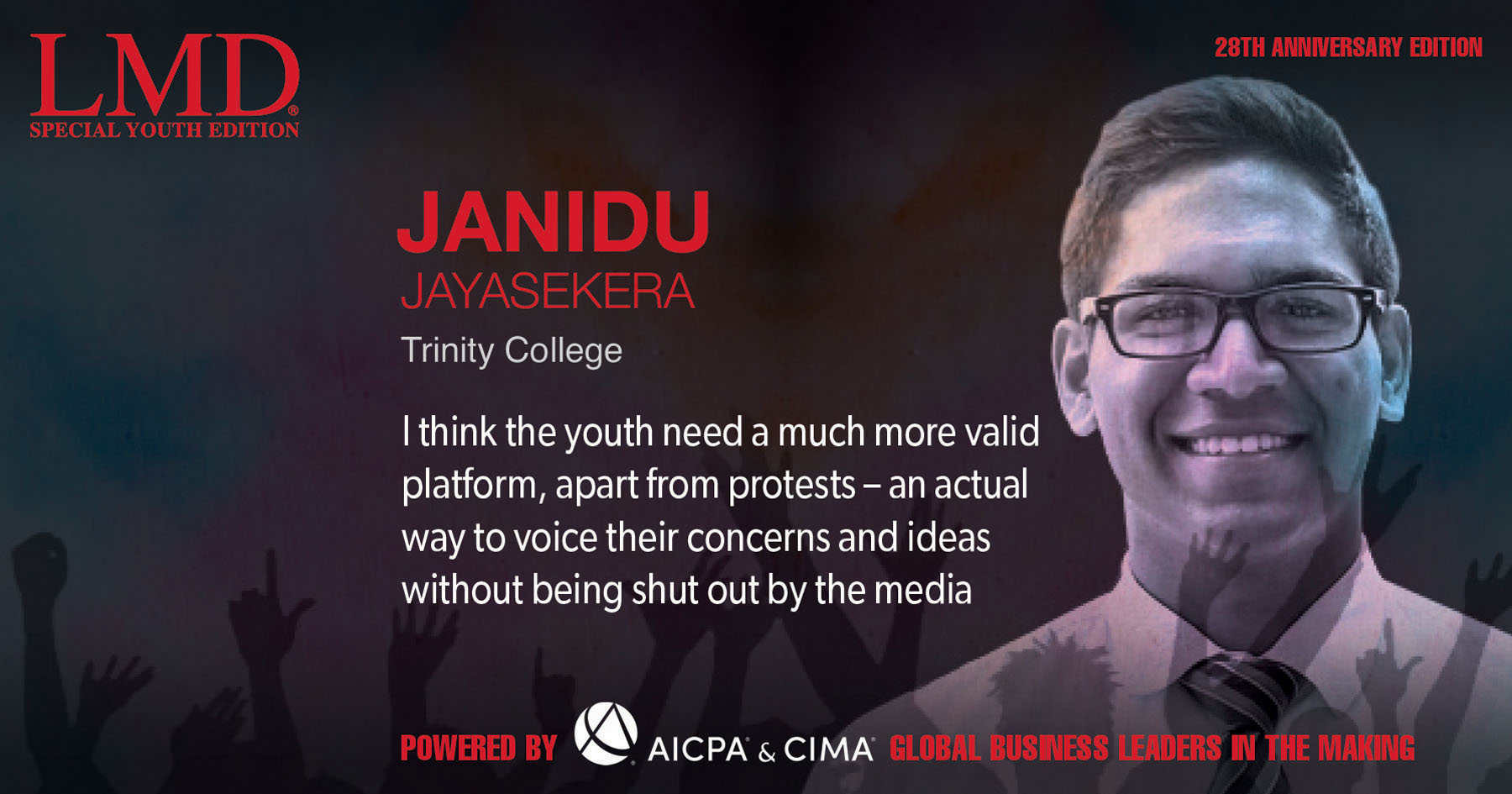Q: In your view, has the aragalaya led to a united Sri Lanka – and if so, is this unity sustainable?
A: On the face of it, it does seem as if there is a unity unseen before because if anything can bring people closer, it would be adversity and suffering.
Whether or not it is sustainable, only time will tell. Right now, the lower income class must consider the opportunity cost of participating in protests as a day of protesting means that their daily means of subsistence is lost.
The middle and upper classes however, have a fall back of capital they can rely on, no matter how tight things may be. So sustainability is really a question at present.
Q: How do you view the aragalaya – and how do you think the voices of the youth should be heard?
A: The aragalaya was a long time coming – all it really needed was a tipping point. But in reality, this present is the past for many people below the poverty line. It’s just that now, the middle class that has not had to face adversity so severe finds itself taking to the streets. This is when the aragalaya really found its main support system.
I think the youth need a much more valid platform, apart from protests – an actual way to voice their concerns and ideas without being shut out by the media.
Q: As far as our education system goes, what are the pros and cons?
A: The free education system is an undoubted pro but the fact that it can be crippled due to many external factors means that there isn’t a steady output from it.
The problem isn’t with the education itself; but rather, with the fact that there aren’t enough job opportunities and areas in which certain types of education can be explored, and put to good use. These structural issues force people to seek privatised education and ultimately, migrate.
Q: Do you see yourself remaining in Sri Lanka – or returning to Sri Lanka – or do you think it’s best to migrate?
A: Anyone would want to live in their country of birth and give back to it; but with a future that looks immensely bleak, not everyone would be willing to do so.
If migration is a possibility, then I think that option should be taken as anyone should have the freedom to live wherever and however they want to. Right now, with each day looking bleaker than the last, and with no solution in sight, it really would be unfair to ask anyone to stay.
MESSAGE TO THE YOUTH
It’s our time. Generations of corruption have led to our state of being. It’s time for a new Sri Lanka.
SRI LANKA: FIVE BURNING ISSUES
Corruption and theft of finances
Lack of proper planning of future investments
Food, fuel and gas crises
Need for a new group of leaders with proper educational qualifications
Proper plan to restructure the job market and appropriate education
ROLE MODEL
Currently, I do not have one but if any qualities were to be valued, they would be the ability to plan ahead, think critically and being able to understand the plight of all citizens.
SUMMARY
The youth need a proper gateway to take charge in a country that has failed historically due to corrupt leaders without proper educational qualifications. The job market needs to expand in a way that people won’t be incentivised to migrate in search of better pay and quality of life.
A proper action plan needs to be established urgently with an emphasis on investments and a steady inflow of revenue to the country.


